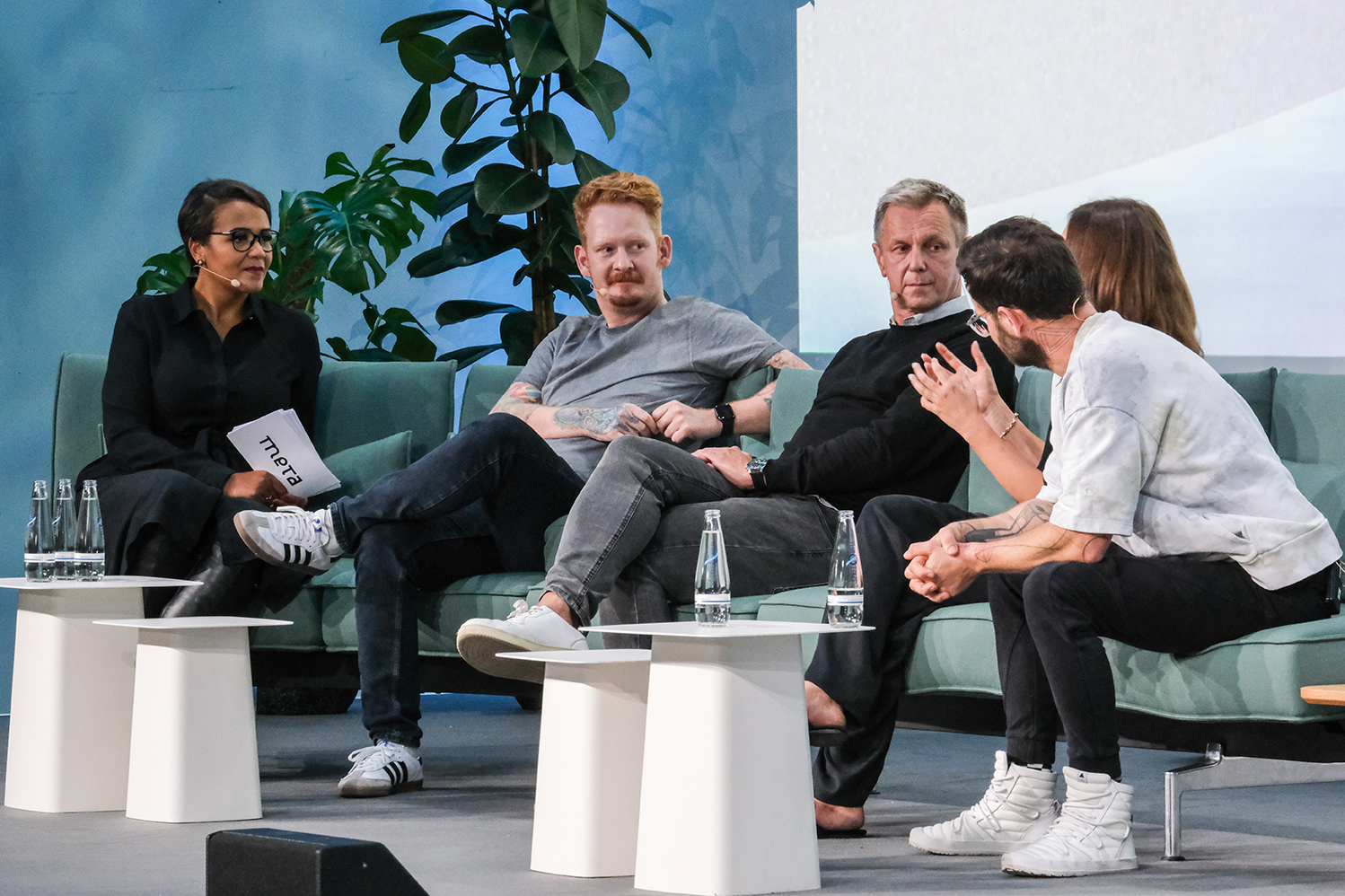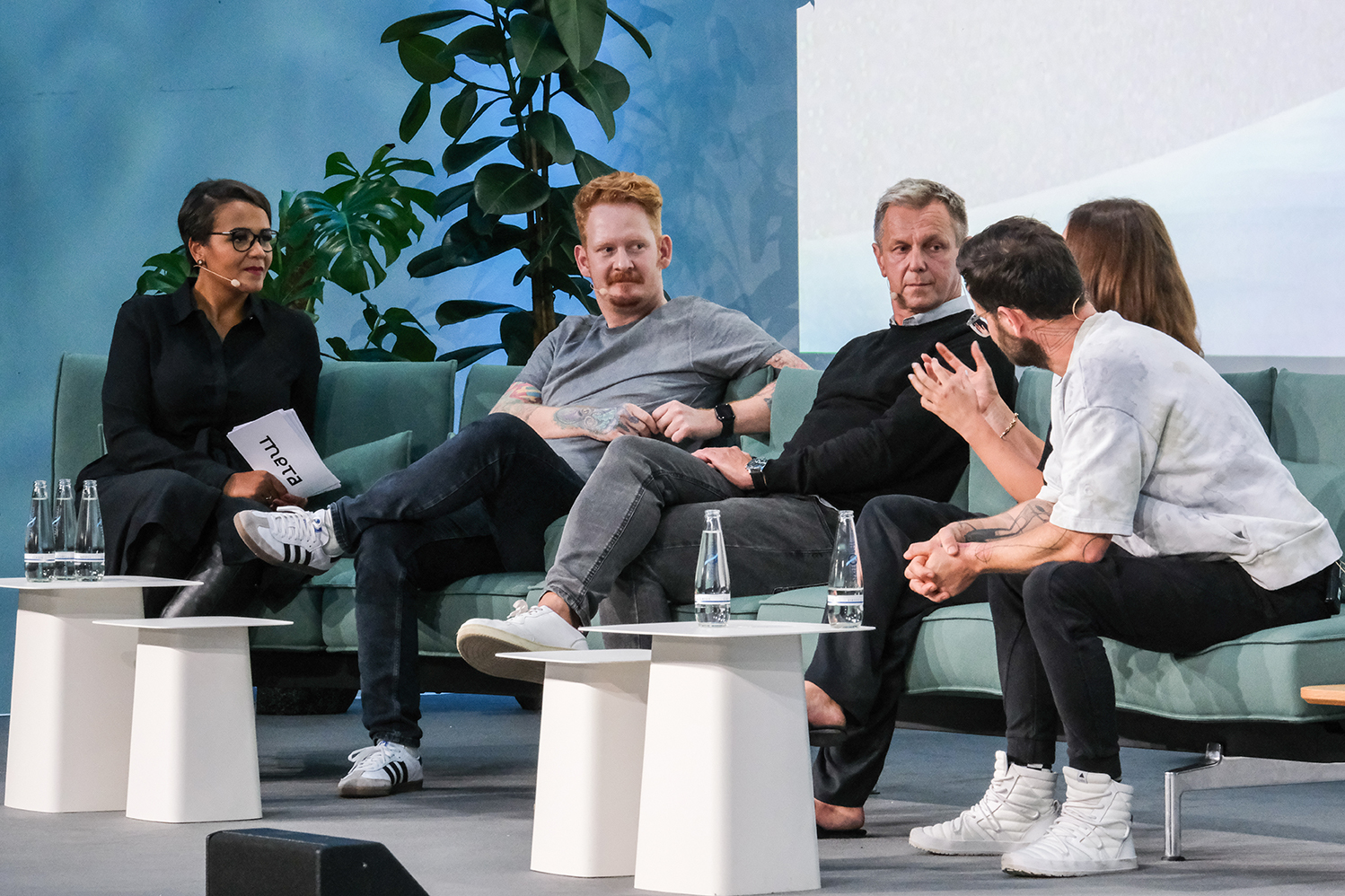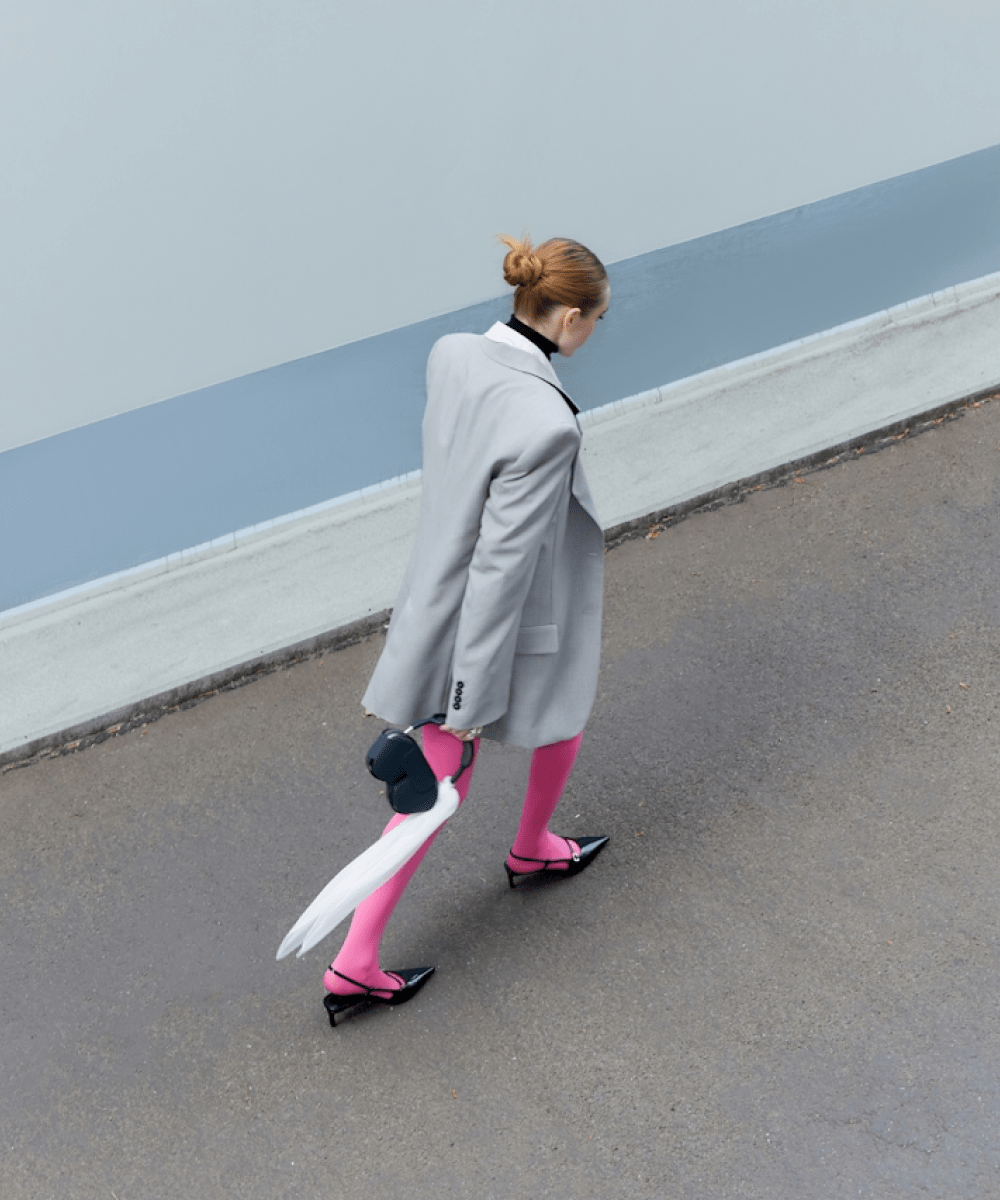Is ownership outdated? How new concepts are paving the way for more sustainable fashion


In the third panel of Meta Festival 2021, Maria Spilka, Oliver Lange, Thomas Chabin and Dr. Tim Wiegels shared their ideas about rental concepts and talked about the effectiveness of new technologies for sustainable fashion production. Here are the top three learnings from the discussion.
In the next few years, we will see increased innovation in the production sector.
Oliver Lange – Head of H&Mbeyond
Sharing is caring
Whoever thought that sharing is a new trend, thought wrong. Washing in launderettes, book lending and living in shared apartments have been practised for years. Why shouldn’t we expand sharing to new areas such as fashion? Movements like Fridays for Future inspire people to question their consumption and look for alternatives. Second-hand, sharing and rental models offer solutions to act more sustainably. Companies and campaigns like Mädchenflohmarkt and H&Mbeyond are already leading the way and proving that these concepts are not only compatible with our conscience, but are also economically successful.
As more people want to try out a certain look for a number of days, weeks or months, the need to own clothes will weaken. This is where sharing comes into play. And the best part is that nowadays, we are no longer limited by our immediate environment. Global digitisation allows a perfect match between supply and demand, as we can search for items and opportunities beyond our geographical boundaries.
But still, even though secondhand or sharing offer greater variety than in the past, and are largely cheaper than buying new, only a small percentage of people are utilising these options in the fashion world. The problem is that there aren’t yet enough options available. Offering sustainable clothing is one thing but convincing consumers to make sustainable purchasing decisions is another. Here, the main task of the companies is to make the offer more accessible. The more brands that provide secondhand, rental and other concepts, the more popular and attractive the concept becomes.
The Meta Festival panellists clearly agreed on one thing: in order to make sustainability accessible to everyone, it should not be a luxury but must be democratised.

Technology will pave the way
There must be a change of thinking in the fashion industry to make resources traded more sustainably. This way, fashion can once again become a pleasure instead of constantly fighting our bad conscience. Circular thinking is essential when planning future fashion production since the lifecycle of clothes is becoming shorter and shorter.
Instead of throwing outdated clothing away, it should be reintroduced into the cycle. Oliver Lange, Head of H&Mbeyond, believes that in the next 10 years, at least 20% of customers will use clothing in the form of circular initiatives, which include secondhand, sharing and rental. Of course, the production of new clothing won’t be overtaken completely, as fashion is constantly being reinvented as new trends develop. But to be able to ensure sustainable production, technologies must be further developed. This will allow brands to manufacture high-quality fashion by reusing materials.
The art will lie in designing the product from scratch, in a completely different way, to still have added value for the owner at the end of the cycle. Technology will be a game changer, but not just in the production sector. Technical solutions can also help us to determine what and how much is needed. It is questionable how much must be produced in advance at all. Can we escape mass production by switching to producing, even partly, on-demand? In the future, we will be able to assess the needs of customers more accurately and adapt manufacturing to the actual demand.
The already growing digital presence in the metaverse could also reduce unnecessary ordering of clothes. Avatars in our exact shape and size already exist, making it possible to try on clothes virtually. The concept of on-demand fashion can also be used for customised and more creative fashion lines. At the same time, companies will reduce their carbon footprint. But if we want to achieve the goal of decarbonisation, all levers – from production over materials to sales and consumption – must be pulled.

The mix makes the difference
After all this talk about future plans, we must not forget that now is the time to act. We should not only think of the ideal that will come in a few years since this ideal can already be lived now. Everyone knows how difficult it is to change one’s behaviour from one day to the next, but let’s think in small steps and not overtax ourselves from the beginning, as with small steps we can also reach our goal.
A consumption mix from different sources is already possible today and in this way, each of us can slowly approach and determine the balance of new and secondhand purchases, sharing and rental. The latter two possibilities are of particular novelty in the fashion world and can bring huge big change with them. But, could this change also mean that ownership is outdated? Is it possible that we will live in a world where we hardly possess anything?
Imagining this, we could ask: how can we still express ourselves? Are possessions and property necessary to do so? Our expert panel is of the opinion that sharing allows much greater opportunities than ownership. Depending on our current mood, feelings and desires, we can easily dress in different ways and try out new styles without investing a lot of money.
Even though it is desirable that fashion brands increasingly adopt sharing and rental concepts, it can’t be said that ownership will be completely irrelevant in the future. The desire to own certain items as status symbols, heirlooms, or just for fun will still be there and depends on the needs of consumers. The buzzword companies need to concentrate on is user centricity. Brands must focus on meeting the demands of their customers in the best possible way. And since needs are very individual, it will probably always be a mix.
Clearly, there are many possibilities to act more sustainably when it comes to fashion while exploring numerous new styles. We are definitely looking forward to what the fashion industry has in store in terms of innovation.
And by the way, how cool is it that we can share clothes with EVERYONE? Ever thought that this piece might have been worn by your favourite idol a few weeks ago? Wow!
More Insights?
View all InsightsMore?
VP of Marketing, EMEA




